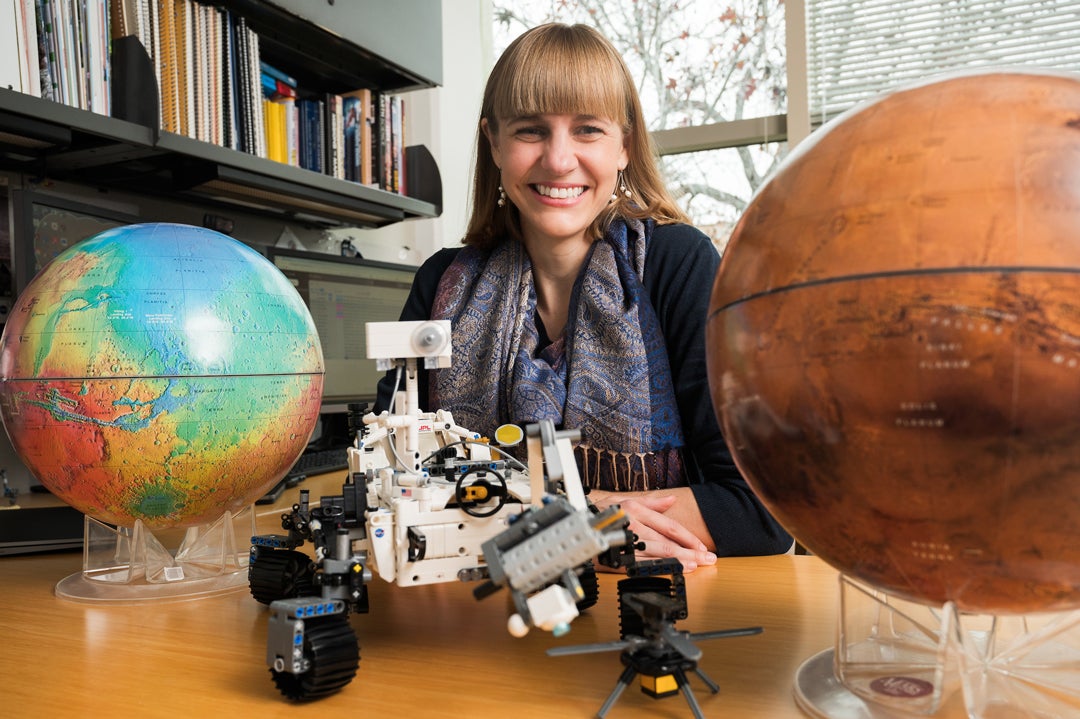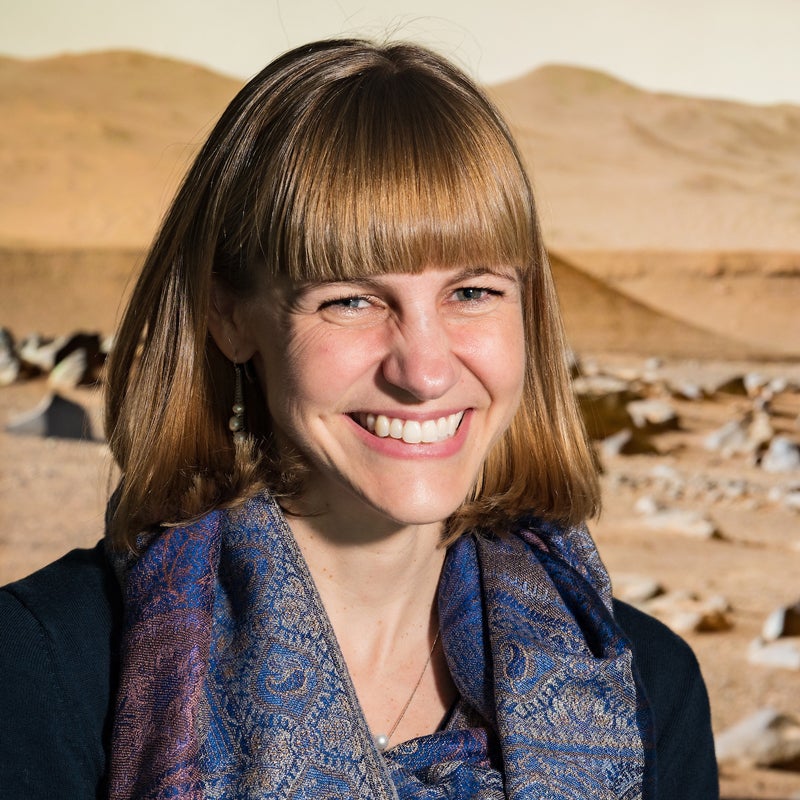
It has long been a science fiction fantasy to time travel. Here at Rice, we have the next best thing: Kirsten Siebach, an assistant professor of Earth, environmental and planetary sciences, uses geology to grab a glimpse of the past of the planet. Adopting the eyes of the Perseverance rover, she studies Martian rocks related to sedimentary processes that have occurred over the ages.
Siebach may study Martian geology, but her work is relevant to Earth as well. Understanding Martian geology allows us “to understand the past and present on both worlds.” With winds, volcanoes and other geological features similar to those on Earth, Mars can provide us with great insight into Earth’s history.
“The purpose of space research is actually very deeply tied to Earth,” Siebach said. “Mars makes us think more creatively, which drives us to recognize things that we overlook on Earth.” Since the majority of people have only been exposed to Earth’s environment, we can “be biased by our place on Earth.” Exploring Mars allows us to challenge these biases since “Mars shows us where our assumptions have hidden new findings.”
Mars exploration also allows us to reevaluate exactly how the presence of life impacts the environment by providing a setting where life hasn’t taken control. “We finally have a chance to segregate what’s occurring because of abiotic environmental factors and what’s actually happening because of microbes that are altering the conditions in which they live,” Siebach said.

Siebach’s work also provides a less tangible but arguably more valuable influence: Inspiration. Through having a deeper understanding of Mars, we are driven to “ask new questions and think in new ways,” Siebach explained. Martian research can deeply inspire others to look after our own planet. “Part of what we do when we appreciate what Mars is like is we begin to have a much deeper appreciation for the factors that make Earth such a unique and perfect place for us to live.”

Comparing Mars, the fiery red planet devoid of life, to our home planet, filled with vibrance and life, can provide valuable insight into Earth’s place in the universe. To keep Earth from becoming as desolate as Mars, we must make sure it's sustainable for future generations. “Space can inspire ways to re-address and rethink a lot of sustainability questions here on Earth, engineering questions we have here on Earth, geological questions we have here on Earth, and more,” Siebach explained.
Relying on rovers for exploration comes with a unique set of challenges. “It’s like a road trip with 400 scientists, no roads and one car,” Siebach said. Natural disasters, like the recent California wildfires, can also make it difficult to communicate with the rovers. This makes the idea of having people on Mars an exciting prospect for Martian researchers.
Siebach is also excited about future Martian sample return. “It’ll change our understanding of Mars. And everything that changes our understanding of Mars so far has also changed our understanding of our own world,” she said. Perseverance has been gathering rock samples to be sent to Earth within the next 15 years. Siebach is especially interested in receiving a sample drilled from a rock with alteration spots, as it could be proof of interactions between reduced and oxidized fluids, which “are typically associated with microbes on Earth.”
Though Siebach may not have a time machine, she is able to take a journey through our universe’s past — one rock at a time.
— Sophia Straus ’28

